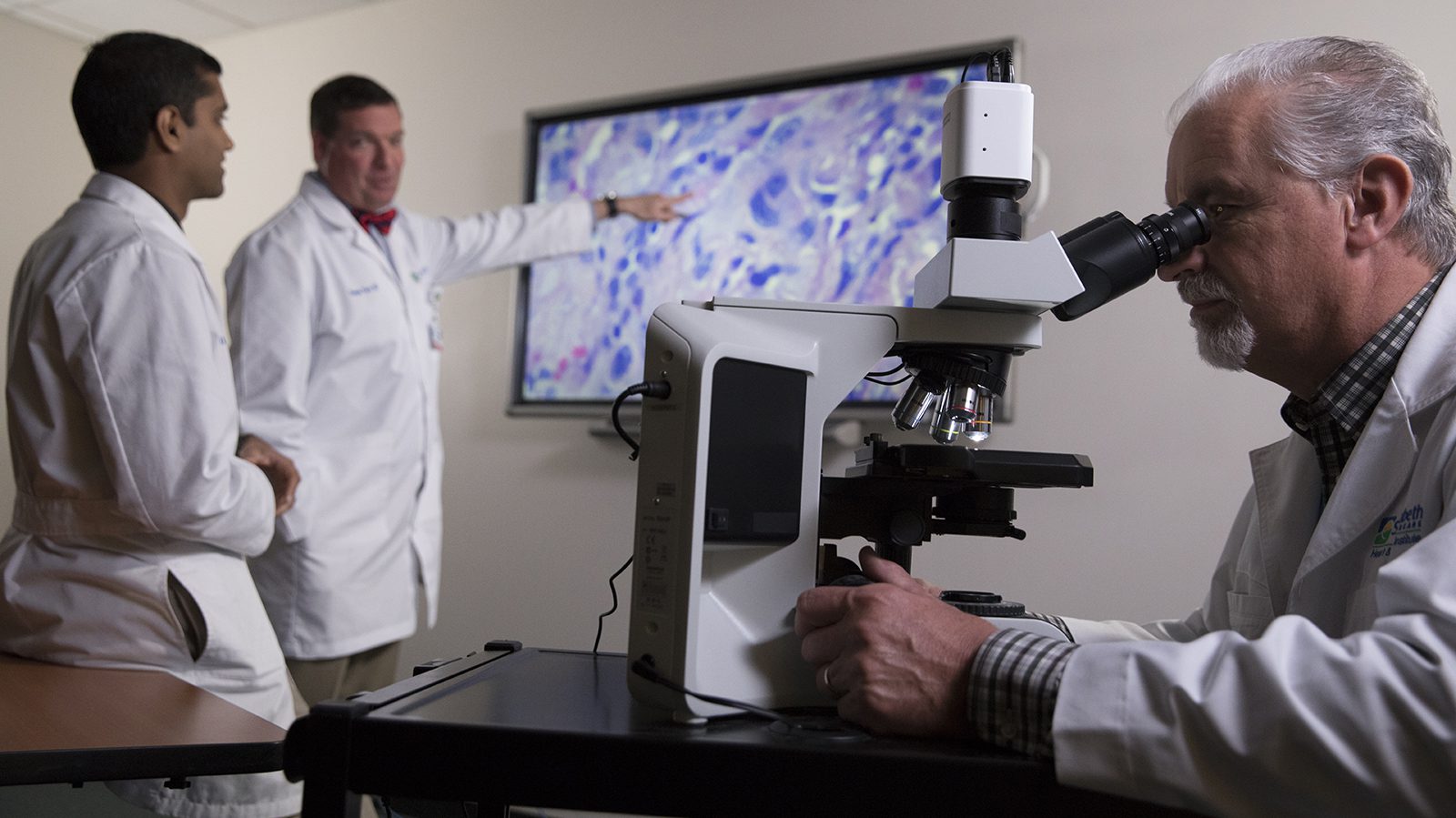Uterine Cancer
Although the terms “uterine” and “endometrial” cancer are often used interchangeably, they are not the same. Endometrial cancer develops from the inner lining (endometrium) of the uterus and 95% of cancers that begin in the uterus develop in the endometrium. Uterine cancer forms in the muscle of the uterus and is rarer.
Uterine cancer is considered a sarcoma because it develops in muscle tissue. There are three main types of uterine sarcomas:
Causes of Uterine Cancer
The causes of uterine cancer are not yet known. Your risk of developing the disease is higher if you have any of the below known risk factors.
Risk Factors for Uterine Cancer
Some people who get uterine cancer have a specific mutation in their DNA that increases their risk of getting uterine cancer. Our hereditary cancer program can provide important information to you and your family so we can take identify cancer early, when it is most treatable, and plan your treatment.
Risk factors associated with uterine cancer include:
- Age.
- Family history of uterine cancer.
- Hormone imbalance.
- Obesity.
- Not having children.
- Menstruation beginning at an early age.
- Long-term use of hormone replacement.

Make an appointment
For more information, please contact your oncologist or the Cancer Care Center at (859) 301-2237, option 2.
Symptoms of Uterine Cancer
Uterine cancer often has no symptoms. Signs and symptoms that may occur are:
- Abnormal menstruation.
- Pelvic pain.
- Vaginal bleeding after menopause.
Diagnosing Uterine Cancer
If your doctor suspects that you have ovarian cancer, they may run tests to determine the stage of cancer to develop the best treatment plan. These tests include:
- Biopsy.
- Blood tests to check genetic makeup and blood markers.
- CT scan.
- Exploratory surgery.
- MRI.
- PET/CT scan.
- Pelvic exam.
- Transvaginal ultrasound.
If you’ve been diagnosed with uterine cancer, we can provide a second opinion and present treatment options.
Treating Uterine Cancer
At St. Elizabeth Healthcare, we believe in caring for you, not just treating your cancer. Our holistic approach means we combine cancer treatment with working to minimize side effects and help you manage them. Our goal is to make you as comfortable as possible while we use innovative approaches to treat your cancer.
Treatment for early-stage uterine cancer usually begins with surgery. We have expertise in robotic-assisted hysterectomy and minimally invasive surgical techniques. Our surgeons are experts in diagnosing and treating gynecologic cancers.
Depending on the stage of your cancer and whether it has spread, your treatment may also include:
Preventing Uterine Cancer
There is no way to prevent uterine cancer, but you can lower your risk of getting uterine cancer by:
- Maintaining a healthy weight.
- Using birth control for more than five years.
Your Cancer Care Team
The team includes medical oncologists specializing in immunotherapy and precision medicine, surgical oncologists, radiation oncologists, interventional radiologists, thoracic surgeons, pain management specialists, genetic counselors, pathologists, nutritionists, pharmacists, nurses and support staff. They work together to create a treatment plan that’s just right for you.


